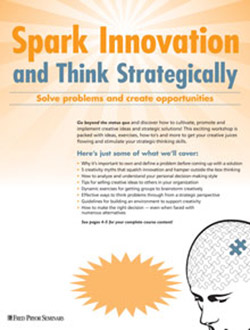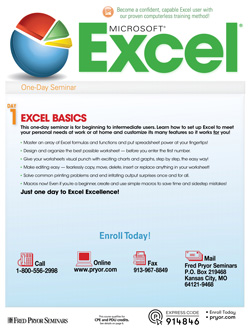How Can You Manage Your Time Better?
- Author: Tepring Crocker
- Categories:
- Tags:
- Share on:
One of the best approaches to time management is to acknowledge that no one can do everything. Yet, many time management trainers still focus on schedules and productivity instead of prioritization, energy and coping with distractions. The truth is that time is limited and you are a finite resource. The effort to “keep up” can make you feel like you’re not able to finish anything.
As Peter Bregman put it in the Harvard Business Review, “The idea that we can get it all done is the biggest myth in time management.” That can be a hard admission to make, and the fact might seem depressing to go-getters. Yet Bregman explains that this realization is empowering because, “Once we admit that we aren’t going to get it all done, we’re in a much better position to make explicit choices about what we are going to do.” [1]
Be Proactive, Not Reactive
Avoid prioritizing tasks because someone else says it is urgent and important. Make that call yourself based on your priorities as you understand them. If someone brings you a fire that needs to be put out “right now,” take a moment to evaluate whether it really is “your” fire. When you understand your goals, and the goals of your organization, you can control your time.
Similarly, today’s “always connected” culture can lead us to think we have to respond to every communication instantly. It can feel like cheating, or like we’re being rude, to turn off the phone and ignore email to focus on a single task. What this really means is a work culture of “always interrupted.”
Instead, when you see that email or receive an instant message, take a breath and evaluate whether the communication is relevant to what you’re working on. Look at the schedule you’ve made for yourself; is this new issue a top priority right now? If not, then it can wait until you’re done.
Avoid Multitasking
You might think you’re good at multitasking, but the evidence says otherwise. In a 2009 Stanford study about multitasking, people who multitasked lightly always outperformed heavy multitaskers in avoiding distractions, in memory tests and in switching smoothly and quickly from one task to another. [2]
When you’ve scheduled time to work on a project, you should work only on that project and shut out distractions — ignore the emails, the phone, and the messages. You’ll get your work done faster, better and with fewer mistakes, and be able to move on to the next thing more smoothly.
Categorize your Tasks
Another important skill is to determine which tasks require what kind of attention:
- Proactive attention – Does the task require intense focus and careful thinking?
- Active attention – Does the task require that you have to think about what you’re doing but it’s either easy enough or you’re skilled enough that you can do it quickly or with a modicum of distraction?
- Inactive attention – Is the task so easy or automatic that you really don’t need to devote much effort to it at all?
What times of day do you feel that you’re best at proactive, active and inactive attention? Are these times consistent? Once you’re able to determine the right amount of attention to put toward the right tasks, then you’ll know the best times to perform those tasks. After that, time management becomes a lot simpler and more effective.
[1] https://hbr.org/2012/01/the-biggest-myth-in-time-manag
[2] http://news.stanford.edu/news/2009/august24/multitask-research-study-082409.html
Choose a Seminar and Save $10
Spark Innovation and Think Strategically
1 Day
- CEU: 0.6
- CPE: 6
Team Training - Virtual or In-person

Speed Reading with Evelyn Wood Reading Dynamics®
1 Day
- CEU: 0.6
Team Training - Virtual or In-person

Time Management for the Overwhelmed
1 Day
- CEU: 0.6
- CPE: 6
Virtual Seminars:
-
Apr 3
-
Apr 9
-
Apr 15
-
+ 17 more dates

Dealing with Difficult People
1 Day
- CEU: 0.6
- CPE: 6
- HRCI: 5.5
- PDC: 6
- PDU: 6
Virtual Seminars:
-
Apr 3
-
Apr 4
-
Apr 7
-
+ 36 more dates
In-Person Events:
- Apr 23, Houston, TX
- Apr 24, Anaheim, CA

Strategies to Build Rapport and Work Well with Others
1 Day
- CEU: 0.6
- CPE: 6
Virtual Seminars:
-
Apr 3
-
Apr 8
-
Apr 17
-
+ 7 more dates







